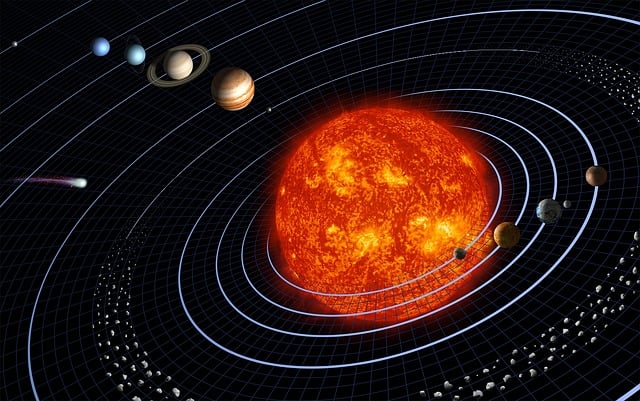
Life is full of ups and downs, and it’s easy to get caught up in the challenges and setbacks that we face. However, it’s important to take a step back and reflect on the things that we have to be grateful for. Expressing gratitude can have a profound impact on our overall well-being and happiness, and can help us to focus on the positive aspects of our lives. In this fast-paced world, we often overlook the simple things that bring us joy and make our lives worth living. In this context, it’s important to take a moment to appreciate the people, experiences, and blessings in our lives that we might otherwise take for granted. Our ability to feel gratitude is influenced by our worldview. If we believe that material possessions are the key to happiness, we may struggle to feel grateful for what we have, as we are constantly bombarded with images of what we lack. However, if we adopt a spiritual worldview, we can focus on the positive aspects of life and cultivate a sense of contentment. By connecting with the Divine within us, we can improve the quality of our thoughts and appreciate the many sources of fulfillment already present in our lives. In this article, we will explore some of the things that we can be grateful and thankful for in life, and how expressing gratitude can enhance our lives in countless ways.
#1 The Invaluable Role of Family and Parents in Our Lives
Family and parents are the foundation of our lives. They provide us with love, support, and guidance throughout our journey. From the moment we are born, they nurture and care for us, sacrificing their own needs and desires to ensure our well-being. They are our first teachers, teaching us essential life skills and values that shape our character and personality. They celebrate our successes and comfort us in our failures, providing a sense of security and stability. As we grow older, our relationship with our family and parents continues to evolve, but their influence remains constant. We should be grateful to our family and parents for the immeasurable impact they have on our lives and for the unconditional love they offer us.
#2 Grateful for the Gifts of Body, Senses, Mind, and Intelligence
Our physical body, senses, mind, and intelligence are remarkable gifts that we should be grateful to God for providing. Our physical body enables us to experience the world around us, to move, to touch, to taste, and to feel. Our senses allow us to perceive the beauty of nature, the warmth of the sun, the sound of birds chirping, and the scent of flowers. Our mind and intelligence enable us to think, reason, create, and communicate with others. These gifts are not to be taken for granted, as they enable us to fulfill our life’s purpose and pursue our goals and aspirations. We can use our body to serve others, our senses to appreciate the beauty of the world, our mind to learn new things, and our intelligence to make wise decisions. Without these gifts, we would not be able to experience the joys and challenges of life. Therefore, it’s important to recognize and appreciate these blessings, and to use them in a way that honors God and benefits others. By being grateful for these gifts, we can cultivate a deeper sense of contentment and joy in our lives, and become more aware of the divine presence that permeates all things.
#3 The Healing Power of Herbs and Chemicals in Medicine
The field of medicine has made tremendous progress in recent years, with new treatments and therapies being developed to combat various diseases and ailments. However, it’s important to remember that many of these treatments are derived from natural sources, including herbs and chemicals found in nature. As such, we should be grateful to God for providing us with these resources, which have been used for centuries to promote healing and well-being. Herbs and chemicals used in medicine can be found in a wide range of natural sources, including plants, minerals, and even animal products. These substances are often used to create powerful drugs and treatments that can help alleviate symptoms and cure diseases. For example, the bark of the willow tree contains a chemical called salicin, which is the active ingredient in aspirin, a widely used pain reliever. By providing us with these natural resources, God has given us the tools to combat illness and disease, and to improve our overall health and well-being. As such, we should be grateful for the many gifts that nature has bestowed upon us, and strive to use them wisely and responsibly.
#4 The Importance of Sun and Moon: Blessings from God for Life and Ecosystem
As human beings, we often take for granted the many blessings that we enjoy in life. One such blessing is the provision of the sun and the moon, which are essential components of our ecosystem. The sun, with its warmth and light, provides the energy that sustains life on earth. Without it, plants would not be able to carry out photosynthesis, and the food chain would be disrupted. Similarly, the moon plays a crucial role in our lives by regulating the tides and supporting the growth of vegetation.

We should be grateful to God for the gift of the sun and the moon because they provide us with a sense of time, order and stability in our world. The sun rises every day, providing us with a sense of rhythm and predictability. The moon, with its phases, reminds us of the cyclical nature of life and the importance of change and renewal. Together, the sun and the moon offer us a sense of balance and harmony in our lives. In addition, the moon’s gravitational pull plays a critical role in supporting the growth of vegetation. The gravitational force causes the movement of water in plants, which is essential for their survival. The phases of the moon also affect the timing of planting and harvesting, helping farmers to optimize their yields and ensure food security. In conclusion, the provision of the sun and the moon by God is a testament to His mercy and generosity towards us. We should be grateful for these gifts and appreciate the many ways in which they enrich our lives and sustain the ecosystem.
#5 The Importance of the Ozone Layer: A Reason to Be Grateful
The ozone layer, also known as the ozone shield, is a layer of ozone gas that surrounds the Earth and helps to protect it from harmful ultraviolet radiation from the sun. The ozone layer plays a vital role in supporting life on our planet, and we should be immensely grateful to nature for providing us with this protective shield. Without the ozone layer, life on Earth would be vastly different. Ultraviolet radiation from the sun can cause skin cancer, cataracts, and other health problems in humans and animals. It can also damage crops and ecosystems, leading to food shortages and other environmental problems. Thankfully, the ozone layer acts as a natural shield that absorbs most of the harmful UV radiation from the sun, protecting us and the environment. This natural protection is a gift from God, and we should be grateful for it.
#6 Gratitude towards our immune system
Our immune system is an incredible mechanism that protects us from harmful pathogens and disease-causing microorganisms. It is constantly working behind the scenes, identifying and eliminating threats to our health, and keeping us safe and healthy. Yet, we often take this incredible system for granted and overlook the importance of being grateful for it. The human body is designed to withstand a vast array of harmful bacteria and viruses, and our immune system plays a crucial role in this defense. Without it, we would be vulnerable to a host of illnesses and infections that could quickly compromise our health and wellbeing. From the common cold to more severe diseases such as cancer, our immune system fights tirelessly to keep us healthy. By cultivating gratitude for our immune system, we can take steps to support it and optimize its function. This includes getting enough rest, eating a healthy and balanced diet, and engaging in regular exercise. When we appreciate the hard work that our immune system does for us every day, we can make a conscious effort to take care of it, helping to ensure that it continues to function at its best.
#7 Gratitude for Nature’s Nourishing Gifts: Milk and Grains
Nature is a generous provider, offering us a wealth of resources that sustain us in countless ways. Two of the most important gifts that nature bestows upon us are milk and grains, both of which have played a vital role in human nutrition for thousands of years. Milk provides us with essential nutrients such as calcium, protein, and vitamin D, which are crucial for maintaining strong bones and a healthy immune system. Grains, on the other hand, are a rich source of complex carbohydrates, fiber, and important vitamins and minerals that help to fuel our bodies and support overall health. It’s easy to take these gifts from nature for granted, but we must remember without the sun, soil, water, and countless other factors that contribute to the growth and production of milk and grains, our lives would be much more difficult and less fulfilling. By being grateful for these gifts and recognizing the role that nature plays in our lives, we can cultivate a deeper appreciation for the natural world and our place within it.
#8 The Role of Nature in Hygiene and Cleanliness
Nature provides us with countless gifts, from breathtaking scenery to life-sustaining resources. However, one aspect of nature that often goes unnoticed is its role in maintaining hygiene and cleanliness. Many animals, such as crows and pigs, play a vital role in cleaning up the environment by consuming dead, decaying, and dirty things. This not only keeps the surroundings clean but also helps prevent the spread of diseases. Furthermore, the rain acts as a natural cleaner, washing away dirt and debris from surfaces. Rainwater also replenishes our water supply and helps to maintain the delicate balance of ecosystems. Similarly, the sun plays a critical role in maintaining cleanliness by killing germs and infections with its UV rays. In our modern world, we often rely on artificial means of maintaining hygiene and cleanliness, such as chemical cleaners and pesticides. However, nature provides us with a more sustainable and environmentally friendly solution. By being grateful for nature’s role in keeping our surroundings clean, we can develop a deeper appreciation for the natural world and take steps to protect it.
#9 The Blessings of Air and Water
The provision of air and water is a testament to God’s infinite love and mercy for humanity. These essential elements are the building blocks of life and have countless uses that sustain us in countless ways. Air is the most fundamental element of our existence, and we often take it for granted. We breathe in oxygen and exhale carbon dioxide, which plants use to produce more oxygen. Without air, we would not be able to survive. Air is also essential for wind, which helps to disperse pollen and seeds, making it possible for plants to reproduce. Moreover, air is used to generate electricity, heat homes, and power various means of transportation.

Water is also an essential element for human existence, and we should be grateful for its many uses. It is used for drinking, bathing, cooking, and cleaning. Water also plays a crucial role in agriculture, as it is essential for growing crops and raising livestock. Furthermore, water is used to generate hydroelectric power, which is a clean and renewable source of energy. The provision of air and water is a gift from God, and we should be grateful for their many uses. These essential elements sustain us in countless ways, and we should cherish and protect them for future generations.
#10 Value of Nature’s Precious Resources
Nature has been a generous provider of precious natural resources and substances, such as gold, silver, diamonds, and other minerals, that have shaped and continue to shape the human economy. These resources are not only aesthetically pleasing but have also played a critical role in the advancement of human civilization. Gold, for instance, has been used for centuries as a store of value and a medium of exchange. It is a finite resource and is not easily replicable, making it inherently valuable. Similarly, silver, platinum, and other precious metals are widely used in industries such as electronics, dentistry, and medicine, due to their unique physical and chemical properties. Diamonds, another precious natural resource, are highly valued for their beauty and durability. They are used in jewelry, as well as in industrial applications such as cutting, grinding, and polishing. These precious resources have been instrumental in shaping our modern world and have helped to fuel the growth of various industries. But beyond their economic value, they are also inherently valuable as they are gifts of nature, reflecting the beauty and richness of the natural world.
#11 Growing through Setbacks : Overcoming Setbacks with Spiritual Wisdom
When we put in a great deal of effort to realize a particular goal, whether it’s in our career, relationships, or life calling, it can be devastating when things don’t go according to plan. It’s especially difficult when there doesn’t seem to be any logical explanation for our failure and it feels like life itself is saying “no” to us.
So, how can we resist the urge to give up on life in the face of setbacks? One way is by recognizing that our present conception of life is limited, and that life is far more expansive than we may realize. The ancient Vedic scriptures teach that we are immortal beings on a journey of spiritual evolution that spans multiple lifetimes. What stimulates our growth can vary greatly from what we perceive as a “yes” or “no” from life, as these judgments are often based on our incomplete understanding of life. The Bhagavad-gita (05.20) speaks to the power of an expanded life-conception, stating that those who are spiritually anchored remain steadfast in the face of both pleasure and pain.
By embracing this spiritual wisdom, we can view a setback not as a rejection of life itself, but rather as a closed door leading to new opportunities. Rather than wasting our energy trying to understand why a particular door has closed, we redirect our focus and intelligence to explore new possibilities. By adopting an expanded vision of life, we can move past the frustration and find new paths forward. With perseverance and purpose, we can weather life’s toughest reversals and emerge stronger for it.
#12 Laws of Karma
The laws of Karma are an immutable, universal principle that ensures that every action we take has a corresponding consequence. The balance of the universe depends on this fundamental law, which ensures that every good deed yields positive outcomes, while every bad deed results in suffering. The consequences of our actions may not be immediately evident, but they inevitably catch up with us in due course. One of the most remarkable aspects of the laws of Karma is that they hold each of us accountable for our actions. This universal law serves as a wise tutor, guiding us towards a moral life. It is a deterrent to sinful actions, and through its harsh but necessary reactions, it helps reform those who are prone to err.

Therefore, we should express gratitude towards the laws of Karma, which aid us in our moral development and keep us on the path of righteousness. This gratitude also extends to the positive impact that Karma has on society as a whole, making the world a safer and more equitable place to live. Indeed, the laws of Karma are a testament to the wisdom and justice of the universe, and we should feel blessed to be a part of this intricate and awe-inspiring cosmic web.
#13 Being Grateful to Guru (Spiritual master)
Expressing gratitude towards our Guru or spiritual master is an important aspect of our spiritual journey. Our Guru is not only a teacher but also a guide who helps us navigate the complexities of life, providing us with the knowledge and tools necessary to overcome our inner and outer obstacles. They inspire us to move forward on the path of self-realization, and their guidance can lead us to experience the ultimate truth. It is our Guru’s grace that helps us to awaken our spiritual potential and connect with the Divine. They offer us invaluable insights into the nature of reality, helping us to understand the deeper meaning of life. Through their teachings, we learn to cultivate virtues such as compassion, humility, and devotion, which are essential for our spiritual growth. We should be grateful to our Guru for their selfless service, unconditional love, and unwavering support. They dedicate their lives to serving their disciples and helping them to attain spiritual liberation. Their guidance can transform our lives and lead us towards a state of profound peace, joy, and fulfillment. Therefore, expressing our gratitude towards our Guru is not only a sign of respect but also an essential aspect of our spiritual journey.
#14 Grateful for Experiencing Selfless Love (True Love)
Experiencing selfless love is truly a blessing that we should be grateful for. Selfless love is a rarity in our world, and when we encounter it, we realize how precious it is. Unlike most forms of love, which come with expectations and conditions, selfless love is given freely and without any desire for personal gain or recognition. It is a pure expression of the love and compassion that exists within an elevated soul. Those who possess selfless love are truly exceptional individuals. They believe that it is their duty to serve and give without expecting anything in return, and they do so with complete humility and sincerity. Their actions are not motivated by personal gain or recognition, but rather by their desire to serve God and humanity. They use their skills to the fullest, pushing themselves to their limits, and leaving the judgment of their actions to God.
Experiencing selfless love is a transformative experience that can open our hearts and minds to the beauty and wonder of life. It reminds us of the power of compassion and kindness, and inspires us to become better human beings. We should be grateful for those rare souls who possess selfless love, for they are shining examples of the best that humanity has to offer. Their actions are a genuine expression of love, and they remind us of the potential that exists within all of us to make a positive impact on the world.
#15 Recognizing Life Itself as a Gift
When we focus on the gifts in our life, our gratitude can become conditional, and we may struggle to be grateful when we face challenging situations. However, if we seek a deeper understanding of life, we can cultivate gratitude by recognizing that life itself is a gift. By contemplating the miraculous nature of our existence, we can appreciate the universal necessities that sustain us and our journey of spiritual evolution. The process of a baby’s journey through the mother’s body until birth is filled with risks, to the point that the success of the delivery is considered a miracle. Throughout our life, we are provided with numerous miraculous arrangements that fulfill our basic necessities for survival, including air, light, heat, water, and more. Even when it may seem that gifts are missing, if we learn to see the ground of our existence itself as a gift, gratitude can persist in our heart. With perseverance and inner contentment, we can evolve towards a richer understanding of our place and purpose in the universe.